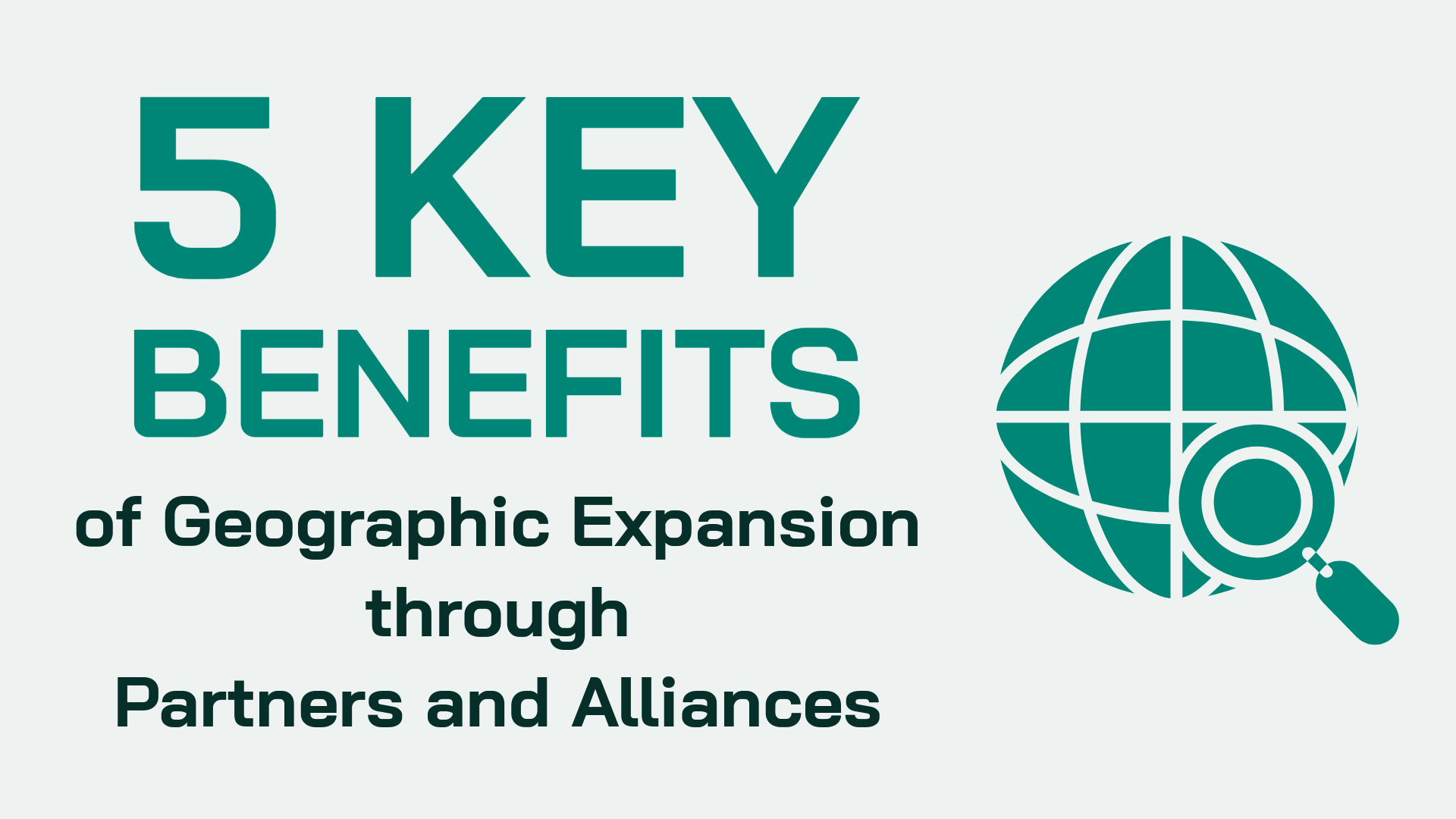
This article is the second blog post in our series on business expansion in a post-pandemic era. The first post focused on geographic expansion, providing tips to maximize success with a phased approach. We’re adding another dimension to the discussion: growing with partners and alliances.
5 Key Benefits to Expanding Geographically with Partners and Alliances
When landing a new market segment, reducing risk and accelerating access to potential clients is critical. Organizations are adopting an ecosystem approach to do this and have accelerated their activities in the last few years. According to BCG Insights,
Among the 2020 S&P top 100 global companies, more than 50% have already built or bought into at least one business ecosystem, most of them in the course of the last five years. In a recent BCG global survey, 90% of multinational companies indicated that they were planning to expand their activities in business ecosystems.
Some of the potential benefits of leveraging local ecosystems and alliances include:
- Market research and local expertise: Partnering with local software or service providers can offer deeper insights into the target market, cultural nuances, legal and regulatory frameworks, and customer preferences.
- Cost efficiency and flexibility: There are cost advantages to using local labor and infrastructure. Engaging local vendors or teams can help reduce expenditures associated with setting up physical offices, hiring talent, and investing in infrastructure. This flexibility allows you to scale operations quickly and efficiently.
- Access to skilled talent: You can tap into a vast pool of qualified professionals, often at competitive rates. Ecosystems allow access to skilled talent without the limitations of geography.
- Risk mitigation and scalability: Ecosystems offer the advantage of risk mitigation when expanding into new geographic regions. They enable you to test the market and evaluate demand without significant upfront investments. They also allow you to easily adjust your operations based on market demand without being burdened by fixed costs.
- A win-win long-term relationship: If your goal is to land and expand a business for the long term, then you need a common set of interests between the partners — something that creates new value that would not be possible on your own. Setting clear expectations, shared goals and metrics, and balanced investment is vital to success in the long run.
Expanding your business into new geographies brings immense opportunities, but it also presents several challenges. Cultural differences, talent acquisition, infrastructure limitations, and market competition are only a few of the hurdles that you’ll need to overcome. At CxO4, we can help. Our Ecosystem-as-a-Service model can alleviate these challenges by providing access to local knowledge, cost efficiency, skilled talent, risk mitigation, and win-win relationships. By leveraging this service model, IT companies can better navigate international markets and expedite their expansion journey.
Let us know if you have questions about expanding your business with partners and alliances! Our team is standing by to help.
Stay tuned for our next post on hiring a fractional executive to accelerate ecosystem growth.